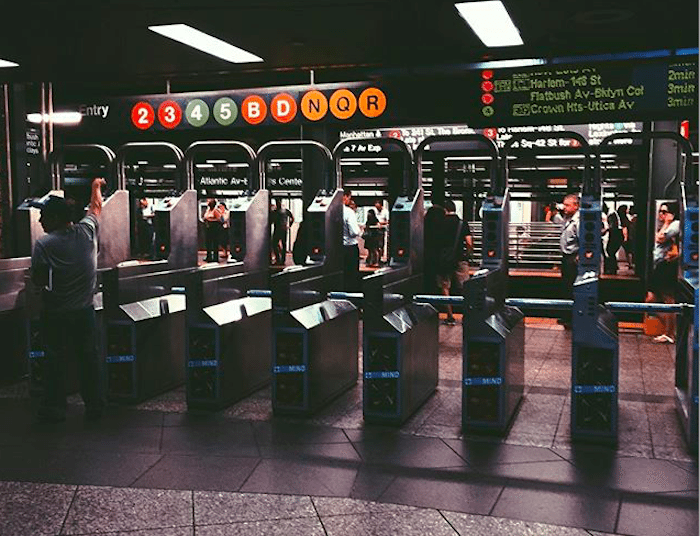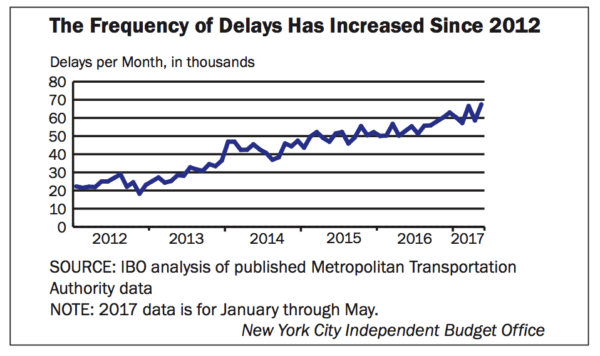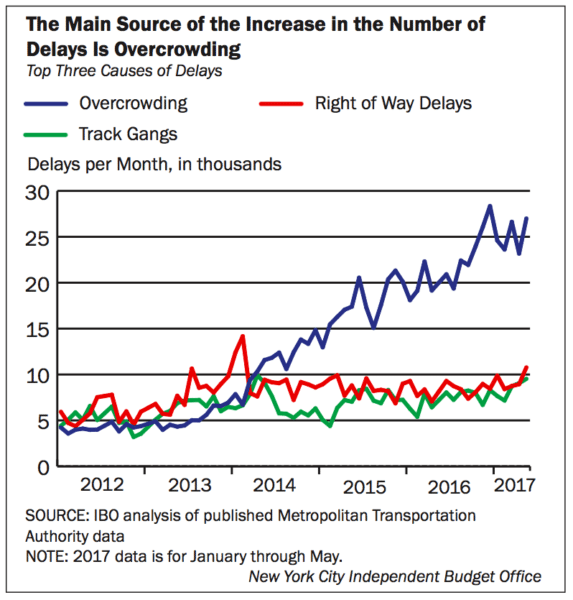Subway Delays Cost Millions In Lost Time, Report Shows

Subway delays are up—way, way up, according to new report from the NYC Independent Budget Office.
“After two days of major breakdowns upended subway service on a number of lines and left many commuters irate, Brooklyn Borough President Eric Adams asked IBO to estimate the time being lost to riders because of these disruptions and to put the lost hours into monetary terms for riders and the local economy,” the report opens.
The report studied a window of five years: from 2012 to until the 12-month period ending in May 2017. What they found confirms what commuters and Twitter have been saying for almost as long: the trains are bad.
About a quarter of all weekday trains have “gaps in service,” which means wait times longer than the MTA’s acceptable timeframe.
The average delays in a month have risen from about 20,000 a month in 2012 to more than 67,450 in 2017. That’s a rise of 237%.

Every morning, passengers lose 35,000 hours to late trains, which is an increase of nearly 50% in the last five years.
Borough President Adams wanted a monetary analysis of these delays, and the report delivered: typical workday delays have a dollar value of about $1.2 million, or $307 million annually.
Of course, this cost is a drop in the bucket compared to the New York Economy, but it’s usually passed on to the passengers themselves: cutting down on the time they have to cook dinner, relax, or be with their kids.
To even be classified as “delayed” by the MTA, trains have to be more than 5 minutes late to their stop.
The biggest cause of delays? Overcrowding. Subway ridership has risen in recent years, and since 2014, overcrowding has been the leading cause of delays every month.

Of course, construction and track delays in the aging infrastructure are also to blame. More than 40% of the subway cars in the MTA’s fleet are more than 30 years old.
The subway system definitely needs renovation, from replacing old signals and cars to streamlining the movement of passengers, but solutions aren’t quite at hand. There’s the proposed millionaire’s tax, or private sponsorship of stations, but so far, nothing New Yorkers can really get on board with.
Even with the data in hand, it looks like subway fixes will be once again running late.



